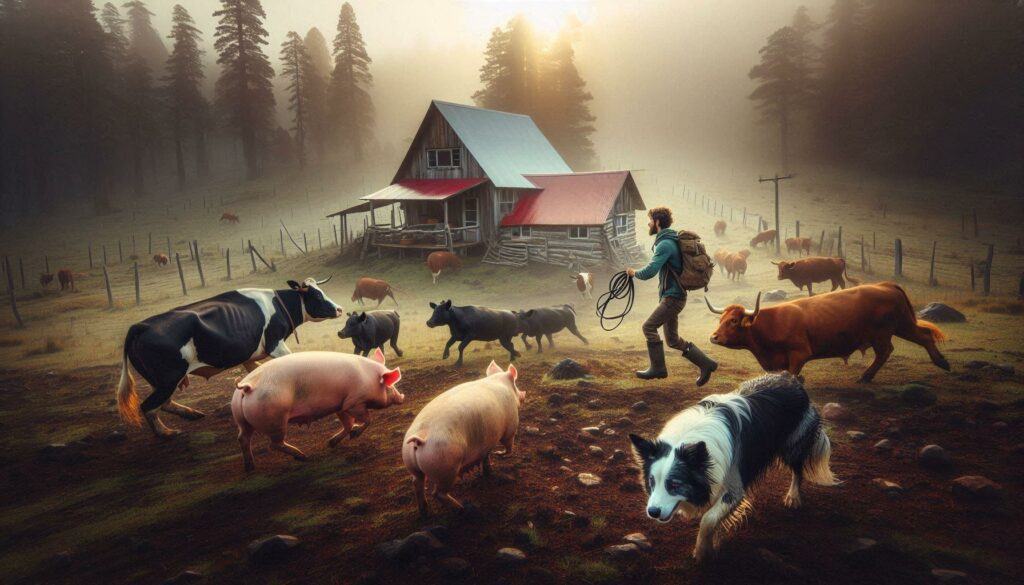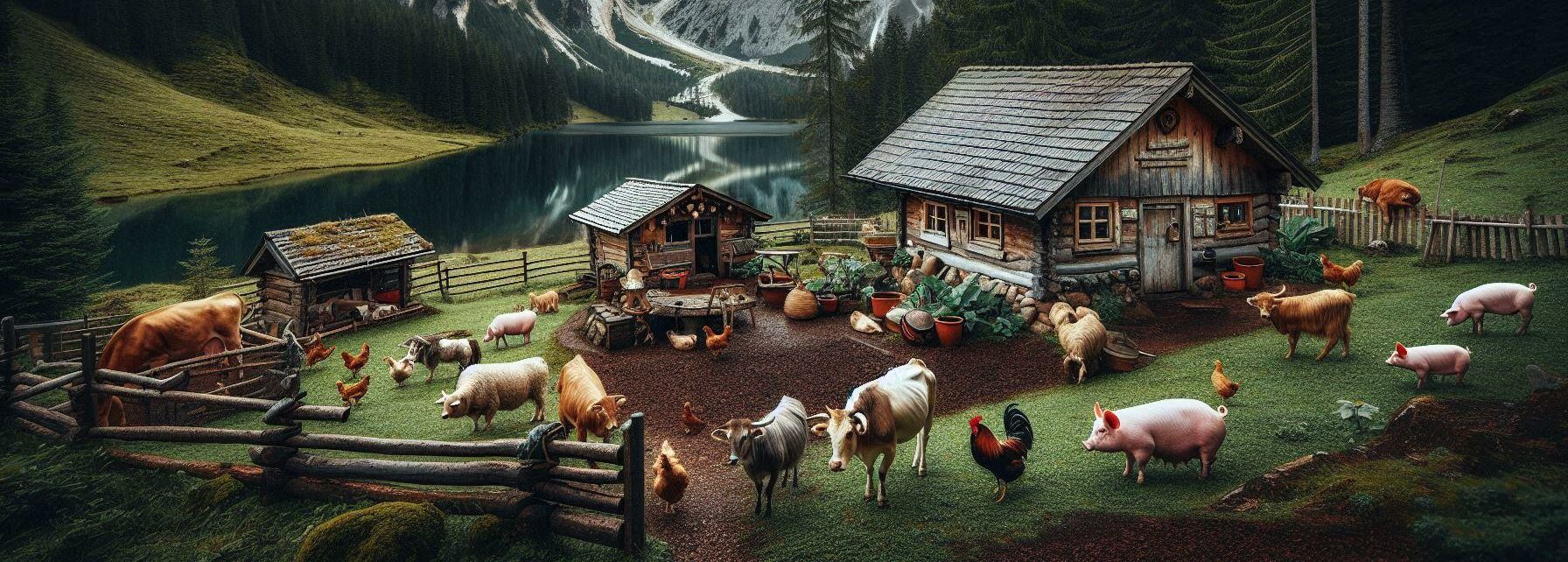Homesteading is more than a way of life—it’s a commitment to self-sufficiency and escaping hectic, urban living. You might be asking, what makes animals such a linchpin in this setup? Well, the answer’s simple: they’re versatile providers. Whether you’re after fresh eggs, daily milk, rich compost, or just a bit of pest control, animals have got you covered.
Animals have their work cut out for them on a homestead. It’s not always about maximizing profit but finding that balance where everyone pulls their weight—without being overworked, of course. Think of the chicken that kicks out fresh eggs while munching on kitchen scraps or the goats that munch on weeds while providing milk. Now that’s multitasking done right!
But why does all this matter? Because choosing the right animals is a game-changer. Set the stage right, and you’re paving the road to a sustainable lifestyle. It goes beyond just acquiring any kind of livestock. It’s about selecting the kind that fits your space, your climate, and your lifestyle goals.
So, if you’re on this path, consider your needs first. Need more protein? Maybe chickens are your best bet. Is dairy your thing? Consider goats. It’s all about what fits your world best. Remember, a homestead isn’t just about owning animals—it’s about creating a seamless, harmonious interaction between them and your land.
Top Livestock Choices for a Productive Homestead
Chickens are often the MVPs of any homestead setup. They’re low maintenance and give back tenfold through egg production. Investing in dual-purpose breeds can win you both eggs and meat, making chickens a versatile choice.
Got a penchant for dairy? Goats are where it’s at. They’re ideal for smaller spaces, not to mention incredibly efficient at clearing those pesky weeds. Consider breeds like the Nigerian Dwarf or the Saanen for the best milk yields.
If you’re aiming to stock the freezer, pigs might just be your spirit animal. They’re brilliant for waste reduction, turning food scraps into hearty muscle mass. The trick is finding a breed that matches your space and climate needs—they can thrive given the right conditions.
Sheep offer a dual advantage of wool and meat. Think American Navajo or Merino breeds—they’re built for various climates and can help in sustainable herd management. Just ensure you’ve got the grazing area required to keep them fit and thriving.
Complementary Animals for a Well-rounded Homestead

Working dogs aren’t just pets—they’re essential teammates when it comes to protection and herding. Breeds like Border Collies or Anatolian Shepherds can increase the security of your homestead while helping manage other livestock. They’re vigilant pals always ready to keep an eye out for you.
Cats may not seem like team players, but they’re stealthy defenders against rodents. A natural pest control method, they help keep those pesky little critters away from your valuable crops and stored food.
Ducks and geese are like the dynamic duo of foraging. While they feast on bugs and weeds, they also provide eggs and occasionally meat. Their unique dietary habits can help improve soil quality and manage pest issues naturally.

Bees might be small, but their contribution to a homestead is massive. They help with pollination which is key for healthy crop yields. Plus, honey is a sweet reward that you can harvest right from your own backyard. Plus, with bees buzzing around, you’re supporting biodiversity right at home.
Creating a Sustainable and Balanced Animal Environment
Understanding your ecosystem is vital when managing a homestead. It’s about finding that sweet spot where your animals thrive and contribute effectively. Aim for an environment where welfare and productivity go hand in hand.
When introducing new animals, think integration. New members should gel easily with the existing crew. Consider factors like temperament and compatibility to maintain harmony within the homestead.
Raising animals ethically means keeping their well-being in mind every step of the way, from housing conditions to diet and medical care. A happy animal is a productive one, so invest in creating a habitat that meets their physical and emotional needs.
Permaculture principles can be a game-changer for any homestead aiming for sustainability. Use these concepts to create a balanced environment that respects natural cycles, promotes biodiversity, and reduces waste. It’s all about a circular system where everything has a purpose and place.





